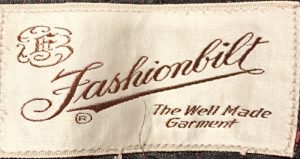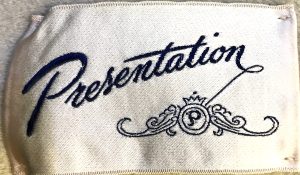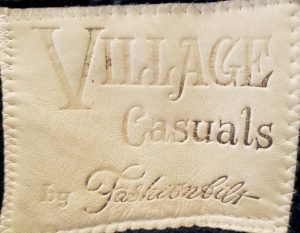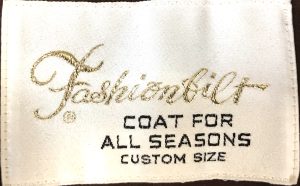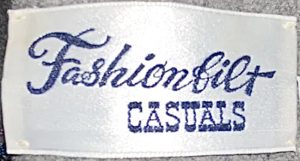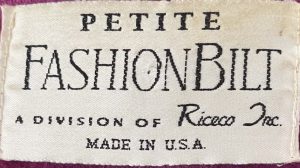The Fashionbilt Garment Company was a Kansas City-based maker of women’s coats and suits. It was founded in 1924 by first-generation Polish immigrant, Meyer Present. The company made high-quality, classic, investment pieces that were intended for long-term wear.
It produced at least four labels in addition to the main Fashionbilt label. Presentation was a petite line that was first advertised in 1952. Fashionbilt Casuals was introduced in the late 1960s and was made through the early 1980s. Village Casuals was produced in the mid to late 1960s, and Risa Diane was made in the very late 1960s to the very early 1970s.
In the 1950s David Salvay designed for Fashionbilt. From the mid-1960s to 1983 Czech immigrant and Holocaust survivor Eugene Lebovitz was head designer for the company. Lebovitz was a gifted designer whose talents were well known and highly regarded in Kansas City, and in New York City where he had previously built a reputation as a skilled tailor and pattern-maker.
In 1976 Fashionbilt was one of the ten largest coat manufacturers in the United States. By the 1980s it was one of the last surviving Kansas City garment manufacturing companies. Imported garments, the widespread closure of small-town mom and pop shops, and the off-shoring of clothing construction by other US companies contributed to declining profits for Fashionbilt and other independent manufacturers in the area. At some point between 1987 and 1991 the company was bought by another Kansas City coat-maker, Riceco, which continued to produce coats with the Fashionbilt label. However, Riceco closed in 1993.
Written by Jennifer Binns of Hollie Point Vintage
